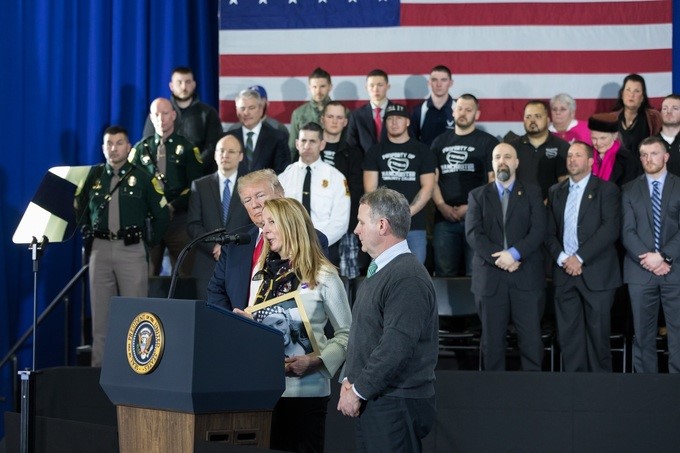According to John P. Walters, the former Drug Czar under President George W. Bush, the president’s proposal for stricter drug laws will provide an important tool for breaking up the illicit drug networks.
“Across the board, it’s a good idea,” Waters said. Referring to capital punishment, he said, “This is precisely the right tool to use at this time against this network threat that is poisoning Americans at a rate never seen.”
The seriousness of the conviction is itself a tool, Walters explained, pointing to evidence that criminals faced with more serious charges, will almost always plead down and give up valuable information about their network.
“We know that to damage these networks we can’t just take out one person. We need these laws to reach senior individuals and make them a weapon to damage more of the network,” he stressed.
The threat of mandatory minimum sentences have worked in a similar way, Walters said, asserting that the three most important tools federal law enforcement officials have used to break up criminal organizations have been mandatory minimums, witness protection and wiretapping.
Already, the United States has two drug kingpin statutes that could be used to charge and convict individuals of serious drug offenses. It is unclear whether the Department of Justice would need new authorities to apply those laws to criminal opioid traffickers.
The first statute, (18 U.S. Code Sec. 3591) specifically permits the death penalty for a drug offense involving the sale or trafficking of large quantities of drugs. The second, (21 U.S. Code Sec. 848) deals with individuals engaged in a “continuing criminal enterprise” responsible for intentionally killing an individual.
The Department of Justice was unable to provide data on the number of individuals who have been charged or convicted under each statute by the time this article was published.
After recent attempts at criminal justice reform and drug sentencing reform, policymakers generally arrived at the consensus that the best criminal deterrent are penalties that are “sharp, swift and certain,” Grawert said. Not the threat of a longer penalty or more serious conviction.
“If you’re evaluating the president’s plan, it might be more symbolic…than actually effective,” Grawert added.
Trump’s Initiative to Stop Opioid Abuse, which he unveiled in New Hampshire on Monday, goes farther than stricter law enforcement.
In an interview with Circa, Secretary of Health and Human Services (HHS) Alex Azar explained that the initiative involves a three-prong approach to combating the drug epidemic: first, addressing, the overprescription of opioid medication by doctors; second, increasing access to addiction treatment and recovery services; and third, cutting off the supply of illegal opioids.
“The nation is facing a devastating, all-community, multigenerational crisis. 116 Americans are dying every single day from opioid overdose” Azar said in an interview with Circa.
“My main focus from the health perspective is preventing people from getting addicted in the first place and treating those who have become addicted,” Secretary Azar said. “But we also have an important role, certainly as a federal government, on stopping the illicit use of opioid medications.”
Part of that, Azar stressed, is the president’s insistence on using law enforcement tools to prevent the spread of these drugs into U.S. communities. “That means being very tough on them and using the statutory authorities we have to punish individuals and entities to the maximum extent permissible by the law,” Azar said.
According to the most recent official opioid overdose statistics, more than 42,000 people died in 2016. Nearly half of those deaths were linked to fentanyl, a powerful synthetic opioid that is 30 to 50 times more potent than heroin.






